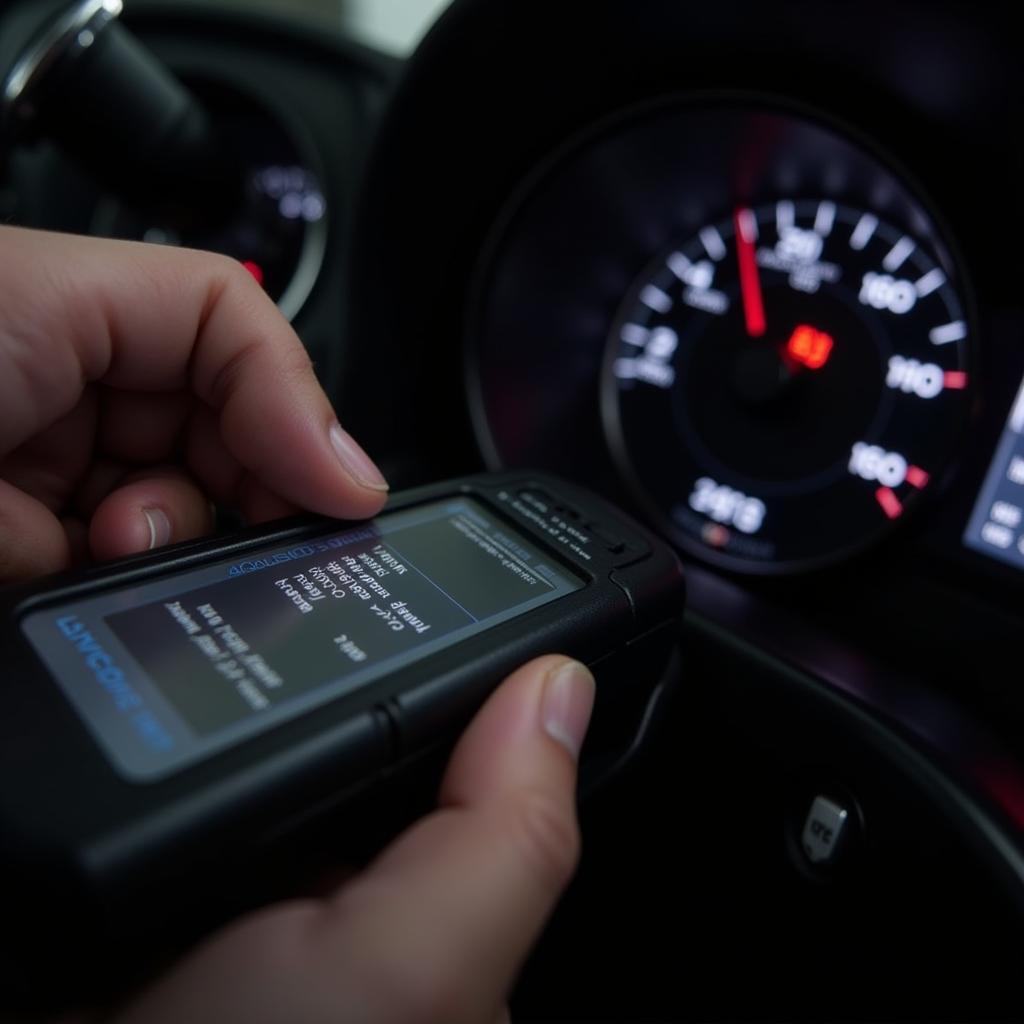An OBD2 scanner is an essential tool for car owners and mechanics alike, offering a window into your vehicle’s engine control unit (ECU). While OBD2 scanners are primarily known for retrieving diagnostic trouble codes (DTCs) and monitoring engine performance parameters, many car owners wonder, “Can an OBD2 read spark plugs?”. Let’s delve into the capabilities and limitations of OBD2 scanners in relation to spark plug analysis.
Demystifying OBD2 Scanners and Their Function
OBD2 scanners work by communicating with your vehicle’s ECU, the brain behind its engine and emissions systems. By accessing data streams and interpreting error codes stored in the ECU, these handy devices can pinpoint a wide range of potential issues, from misfiring cylinders to faulty oxygen sensors.
Spark Plugs: The Unsung Heroes of Combustion
Spark plugs play a critical role in the combustion process, igniting the air-fuel mixture within the cylinders to power your vehicle. Worn or fouled spark plugs can lead to a variety of performance problems, including:
- Engine misfires: A telltale sign of a spark plug on its last leg.
- Reduced fuel economy: Inefficient combustion wastes fuel and hurts your gas mileage.
- Difficulty starting: Worn plugs struggle to ignite the air-fuel mixture.
- Rough idling: Uneven spark plug performance can cause your engine to run rough.
So, Can an OBD2 Scanner Directly Read Spark Plugs?
Here’s the crux of the matter: an OBD2 scanner cannot directly read the condition of your spark plugs. Why? Because spark plugs themselves don’t have sensors or send data to the ECU.
Think of it this way: the OBD2 scanner is like a doctor who diagnoses ailments based on symptoms. Spark plugs are like your reflexes – the doctor can’t examine your reflexes directly, but they can infer information about your nervous system based on how well your reflexes work.
How OBD2 Scanners Indirectly Reveal Spark Plug Issues
While OBD2 scanners can’t analyze spark plugs directly, they can detect symptoms and error codes indirectly related to spark plug problems:
- Misfire Codes: Codes like P0300 (random misfire) or P0301 (cylinder 1 misfire) are strong indicators of potential spark plug issues.
- Oxygen Sensor Readings: Abnormal oxygen sensor data can suggest incomplete combustion, often linked to faulty spark plugs.
- Fuel Trim Values: If your ECU is constantly adjusting fuel trim to compensate for misfires, it could point to worn spark plugs.
Interpreting the Signs: When Spark Plugs Are the Likely Culprit
By analyzing the combination of DTCs and engine performance data provided by an OBD2 scanner, a mechanic or experienced DIYer can make an educated guess about the health of your spark plugs.
For instance:
“If you’re seeing a P0303 code (cylinder 3 misfire) alongside fluctuating oxygen sensor readings and positive fuel trim values, there’s a high probability that the spark plug in cylinder 3 is the root cause,” says John Smith, Senior Automotive Engineer at [Company Name].
Beyond OBD2: Getting the Full Picture
While OBD2 scanners provide valuable clues, a definitive diagnosis of spark plug condition requires a visual inspection and testing.
- Visual Inspection: Examining the spark plug’s electrode for wear, deposits, or damage can reveal a lot about its condition.
- Spark Plug Tester: This tool verifies the spark plug’s ability to generate a strong spark.
Empowering Car Owners with Knowledge
Understanding the capabilities and limitations of an OBD2 scanner is crucial for any car owner. While these devices can’t directly read spark plugs, they offer a powerful tool for identifying potential issues and guiding further diagnostics.
By interpreting the data provided by an OBD2 scanner and combining it with traditional inspection methods, you can ensure your spark plugs are firing on all cylinders, keeping your engine running smoothly and efficiently.
FAQs about OBD2 Scanners and Spark Plugs
Q: How often should I replace my spark plugs?
A: Spark plug lifespan varies depending on the type and driving conditions, but it’s generally recommended to replace them every 30,000 to 100,000 miles. Refer to your vehicle’s owner’s manual for specific recommendations.
Q: Can a bad spark plug damage my engine?
A: Yes, a severely worn or faulty spark plug can lead to engine damage over time. Misfires put extra stress on your engine components, potentially causing costly repairs.
Q: Can I replace my spark plugs myself?
A: Spark plug replacement is a relatively straightforward DIY task for those with basic mechanical skills. However, if you’re unsure, it’s always best to consult a qualified mechanic.
Need Help Diagnosing Car Troubles?
For reliable and accurate OBD2 scanners to help you pinpoint engine issues, explore the wide selection available at OBDFree: obd2 scanner jaguar xk8 1997.
For in-depth information on specific OBD2 codes and troubleshooting tips, check out our comprehensive guides on OBDFree: codigos de falla obd2 nissan.
Get expert advice and support for all your car diagnostic needs. Contact us via WhatsApp at +1(641)206-8880 or email us at [email protected]. Our dedicated customer support team is available 24/7 to assist you.


